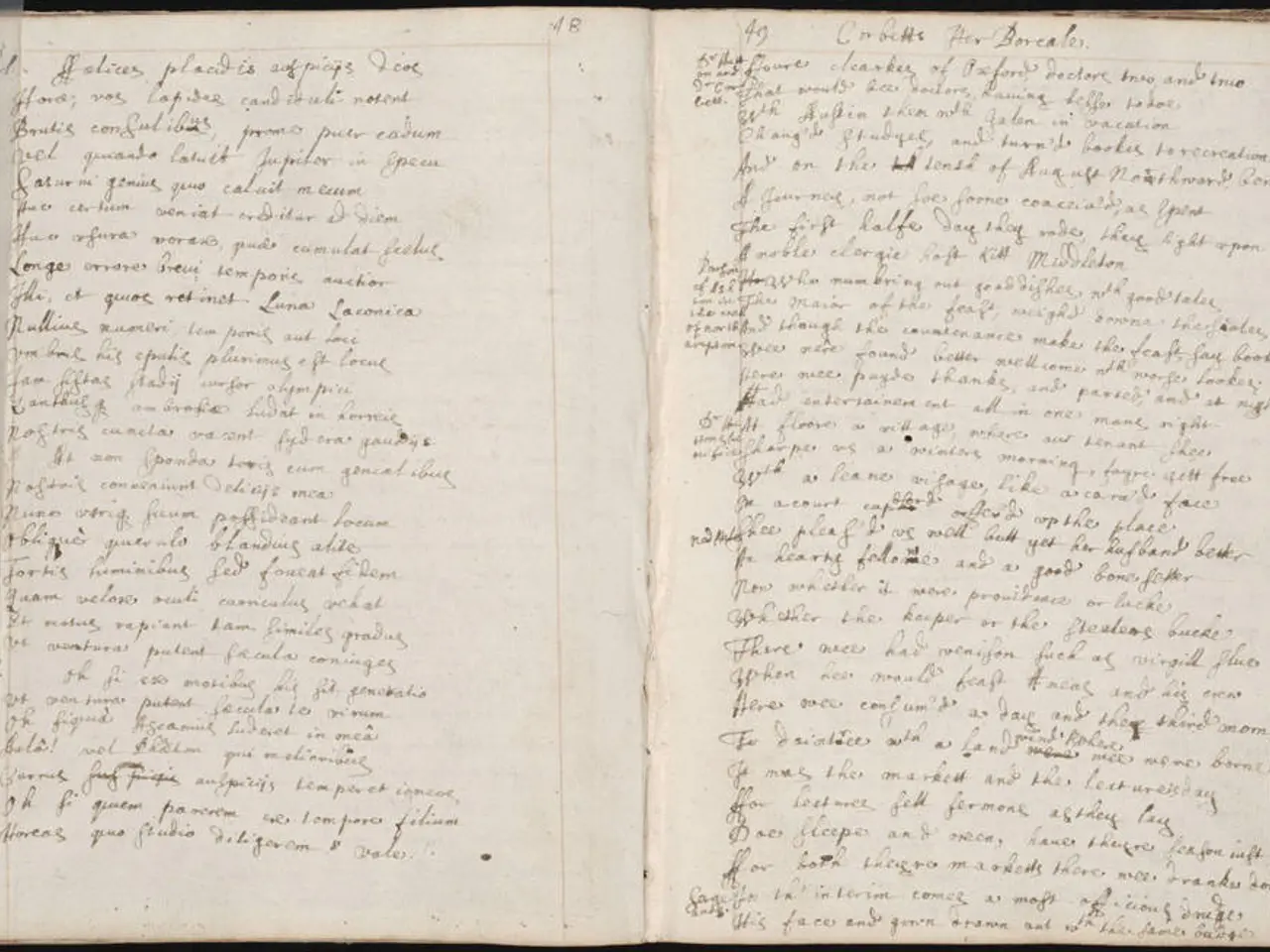Critiquing a Manuscript Outside Your Preferred Literary Style
In the world of literature and film, understanding the expectations of a specific genre can be a valuable tool for readers. Going directly to the target audience can provide insights that are invaluable in determining what makes a story successful.
Approaching a story, even one in a genre you're not particularly fond of, with objectivity is essential. Learning more about the commonalities that exist in stories from the same genre can help you identify the non-negotiables for that genre. For instance, in a romantic comedy (or romcom), elements such as a "meet cute", bonding, falling in love, a breakup or fight, time spent apart, a grand, romantic gesture, and a final kiss are common.
On the other hand, a murder mystery typically includes a dead body found in the first act, a discerning detective, a slew of suspects, a bread crumb trail of clues, a big speech by the detective, and a surprise reveal.
Understanding what to look for in a story allows you to move forward with the task at hand. However, it's important to remember that watching comparable films and TV shows is not the same as reading the scripts or books from which the project was adapted. Reading the raw blueprint for a produced title gives a fuller, more concrete understanding of what worked for individual projects.
Familiarity with well-received scripts (and/or books) in the same category can provide a stronger sense of what well-crafted pages, scenes, descriptions, etc., look like. This arms you with an expanded vocabulary with which you can speak to the rough draft that's under review. Consuming a wider variety of content can also provide insight into what's happening in niche spaces.
Even if you don't fall in love with a script, you can still provide clear, constructive, actionable feedback to the writer. It's crucial not to skim over or give scant notes due to personal artistic tastes. Instead, lead with logic when examining a work-in-progress, rather than pure emotion.
The genre-agnostic aspects of storytelling that need to be present include properly motivated characters, escalating obstacles, clear descriptions, and a story that educates or entertains. In all great fiction, the characters' actions are properly and authentically motivated, the obstacles in their path continue to escalate, the descriptions on the page are perfectly clear, and the overall story serves to educate or entertain its audience.
Being really clear on audience expectations is key to avoiding disappointing readers. For example, the critically acclaimed productions "Slumdog Millionaire," "Euphoria," and various collaborations between Leonardo DiCaprio and Martin Scorsese, as well as Marilyn Monroe's films like "Niagara" and "Gentlemen Prefer Blondes," became successful due to strong storytelling, compelling character portrayals, innovative directing styles, and emotional resonance with audiences and critics alike.
In conclusion, immersing yourself in the details of any material that crosses your desk, gaining familiarity with comparable titles, and understanding audience expectations for stories in a specific genre can significantly enhance your reading and feedback experience.
Read also:
- visionary women of WearCheck spearheading technological advancements and catalyzing transformations
- Recognition of Exceptional Patient Care: Top Staff Honored by Medical Center Board
- A continuous command instructing an entity to halts all actions, repeated numerous times.
- Oxidative Stress in Sperm Abnormalities: Impact of Reactive Oxygen Species (ROS) on Sperm Harm








